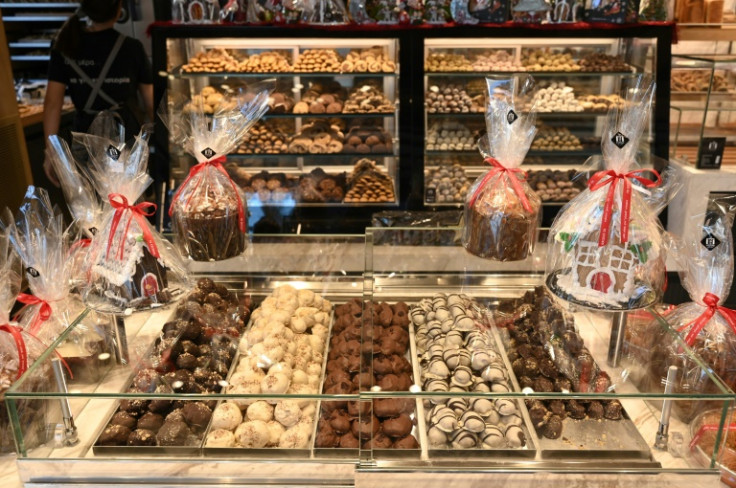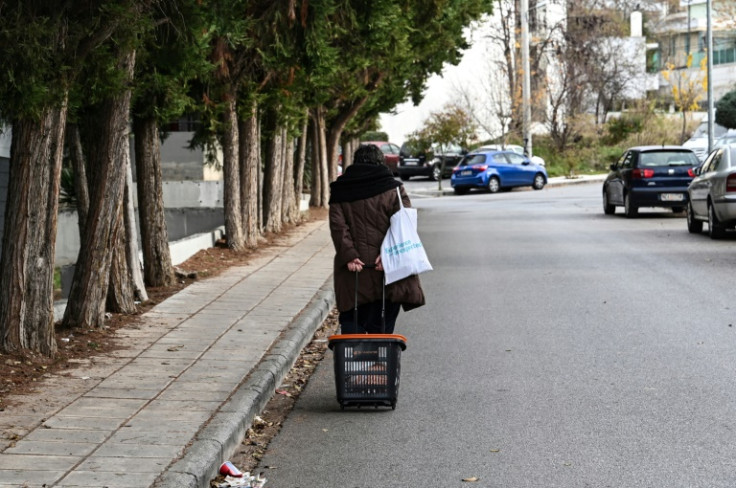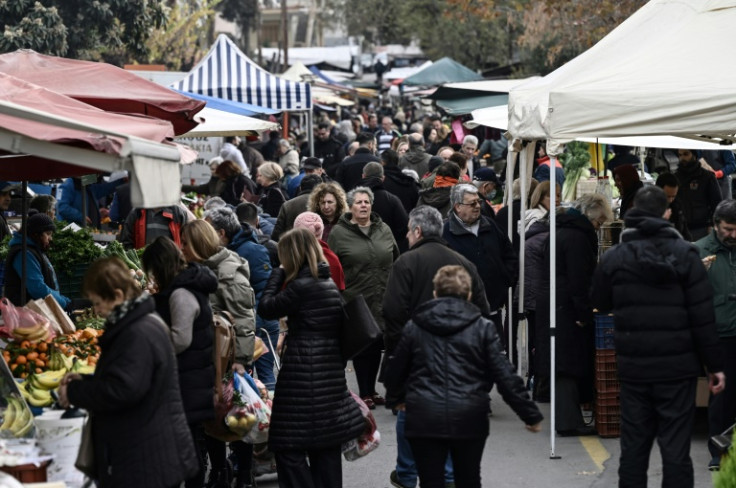
Greece's traditional Christmas sweets made of icing sugar, honey and powdered almonds tantalise shoppers ahead of the festive season as they do every year.
But with prices for the delicacies currently up by seven to 10 percent amid a general cost-of-living crisis, it's not certain whether consumers will be able to afford them this year.
At a cost of nearly 24 euros ($26) a kilo for a box of kourabiedes -- the almond biscuits habitually offered this time of year -- Hatzis, a popular pastry shop in Athens, is nearly empty save for a few tourists.
It's a similar story in Thessaloniki, Greece's second-largest city, 500 kilometres (300 miles) to the north.
In the city market, Petros Elmaliotis has few illusions that his stock of nuts will sell out soon.
In past years, people would throng his stand. But this year demand is limited.
"There were six of us at the stand to serve people. Today there are only two," he told AFP.
People "cut back on what they don't consider necessary."
In November, the annual inflation rate dropped to 3 percent, down from the average 9.65 increase for 2022.
But food prices continue to gallop higher, up by 9 percent in November from the same month last year.
Meat is up 8.1 percent, fruit by 12 percent, and milk, cheese and eggs by nearly 5 percent.
And olive oil has jumped by over 31 percent in a year, fuelled by poor harvests in global leader Spain.
"What is happening is unprecedented," said Christos Dimitriadis, a 69-year-old retired civil servant shopping at a Thessaloniki supermarket.
"How are we supposed to live?" he wondered, pointing to 14-euro olive oil tins that he says used to cost a maximum of four euros two years earlier.
The jump in food prices comes after Greeks have already experienced a brutal fall in their living standards over the last 15 years due to the austerity measures imposed to keep the country in the eurozone following its sovereign debt crisis.
Outwardly, the country is doing great.
The Economist magazine on Monday ranked Greece at the top of 35 countries with the best economic performance for the second year in a row.
Under the pro-business policies of conservative Prime Minister Kyriakos Mitsotakis -- who was comfortably re-elected to a new four-year term in June -- the former eurozone laggard has also regained its investment-grade borrowing rating from global agencies Fitch and S&P.
But despite receiving 289 billion euros since 2010 in three international bailout packages, the weaknesses in the Greek economy remain glaring.
Public debt remains pharaonic at 160 percent of national output.
Salaries remain well below the European average, weighing on purchasing power.
And prices in Greece were on average 5.5 percent higher than the average in the European Union in 2022, according to Eurostat.
For basic products like milk, cheese and eggs, prices were nearly 39 percent higher than the European average last year.
For nearly nine out of ten Greeks, inflation is the major concern, according to a Pulse survey for Skai TV last month.
The disparity has been criticised by opposition parties, who say Mitsotakis is more preoccupied with attracting investors than tackling poverty.
"Your policies offer a poor quality of life for the vast majority of Greeks in a country with low-paid jobs and a very expensive daily life," the leader of the Pasok-Kinal socialists, Nikos Androulakis, said during a recent parliamentary debate.









